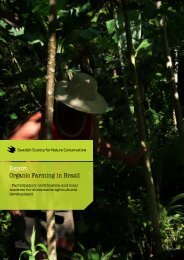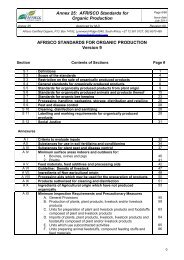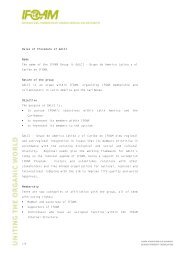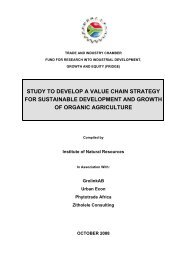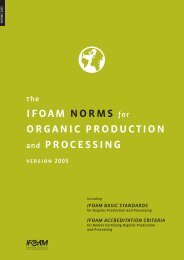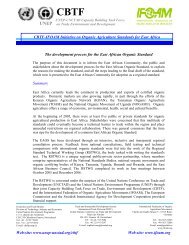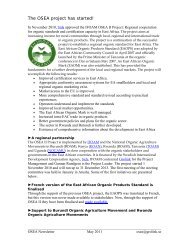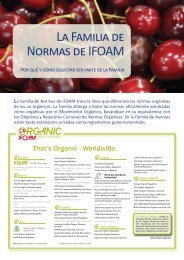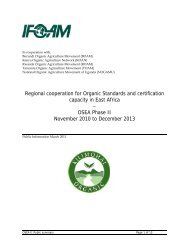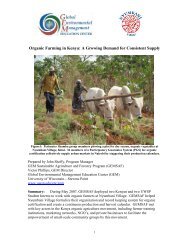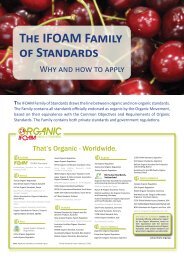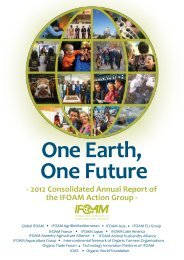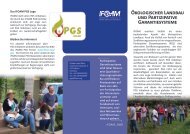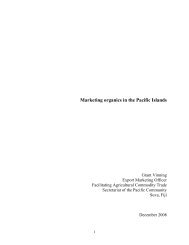OSEA I Project Report - ifoam
OSEA I Project Report - ifoam
OSEA I Project Report - ifoam
Create successful ePaper yourself
Turn your PDF publications into a flip-book with our unique Google optimized e-Paper software.
DEVELOPMENT OF A REGIONAL ORGANIC AGRICULTURE STANDARD IN EAST AFRICA 2005-2007<br />
BACKGROUND<br />
ORGANIC AGRICULTURE IN EAST AFRICA<br />
The East African Community (EAC) encompasses Burundi, Kenya, Rwanda, Tanzania and<br />
Uganda, with a combined population of 120 million, a land area of 1.85 million square kilometres,<br />
and a combined gross domestic product of $41 billion.<br />
In East Africa the development of the organic sector has been an activity mainly driven by the<br />
private sector, commercial exporters (particularly in Uganda) and NGOs (especially in Kenya).<br />
Production<br />
The numbers of certified producers and farmland under organic agriculture are increasing:<br />
Kenya Farmers: 35,000 Farms: 181,500 ha Companies: 18<br />
Uganda Farmers: 60,000 Farms: 250,000 ha Companies: 34<br />
Tanzania Farmers: 55,000 Farms: 85,000 ha Companies: 31<br />
In Rwanda there is a handful of organic projects and in Burundi one or two.<br />
More operators are investing in organic agriculture, and the products lines are expanding.<br />
Training and Extension<br />
In Kenya there are around 30 NGOs providing training in organic agriculture. Some of them<br />
(e.g., the Kenya Institute for Organic Farming [KIOF]) have already existed for 20 years. There<br />
are also a number of NGOs engaged in training in Uganda and Tanzania. Lately, universities<br />
have shown some interest:<br />
• Sokoine University, Tanzania has a course in organic agriculture.<br />
• There is a summer school with Makerere University, Uganda.<br />
• Uganda Martyrs University has an organic-agriculture degree course.<br />
Extension work has to a very large extent been done by NGOs and (export) companies. The<br />
public extension service has not really been involved in organic agriculture.<br />
Research<br />
There has been very little organic research in the region. Sokoine University has just embarked<br />
on a 20-year trial with FIBL (Switzerland). ICIPE in Kenya does applied research for pest control,<br />
based on organic-agriculture principles.<br />
7



